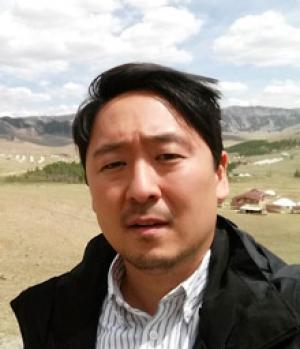
When Harrison Kim started working at MU in 2014, he and Sheena Chestnut Greitens, an assistant professor, immediately began talking about founding an institute to support and highlight the research MU faculty and students had already been doing about the Korean peninsula. Their idea came to fruition last month, with the creation of the MU Institute for Korean Studies.
“We realized that the University of Missouri has some really unique comparative advantages when it comes to Korean studies, and that goes all the way back to President Truman, the Korean War and President Truman’s legacy on campus,” IKS co-director Greitens said. “We have access to one of the best documentary collections on the Korean War anywhere in the world in the Truman Library, not too far away, and even some interesting collections in MU’s different libraries.”
MU has a long-standing relationship with Korea. At the urging of President Truman in the 1950s, a free-tuition program for Korean students began. Now, it’s one of MU’s oldest international relationships and one of the university’s largest international alumni chapters.
“MU, as a result, has a huge alumni community and affiliate network in Korea, and is really really well-regarded in Korea as being one of the great American public research universities,” Greitens said. “So we realized that we have these great and relatively unique resources and we thought it would be great to build on those.”
While the majority of Korean studies programs focus on language and culture, IKS places its focus on social sciences, such as political science, law, economics, policy and history, as well as tourism, hospitality management and agriculture.
“Part of what was exciting about putting the pieces together to create IKS is that we have the opportunity to become a nationally and internationally recognized center pretty quickly, in the next few years,” Greitens said.
Due to the cloistered nature of North Korea, the bulk of the studies and research involve South Korea. However, MU is one of the few American universities that has already begun a relationship with North Korea, and in the past has invited North Korean scientists to train on campus.
“Currently, United States and North Korean relations are not good, so even though we’d like to have North Korean scientists come to campus and be educated, it has not been done for the past 10 years,” IKS executive director Seungkwon You said. “So we’d like to be, in that regard, front-runners to normalizing a relationship with North Korea.”
IKS co-director Kim said he hopes global issues will be highlighted and contextualized through the study of the Korean peninsula.
“What are we going to do as a country and as responsible citizens about refugees, immigration, economic inequality, government power, despotism, authoritarianism, human rights abuses?” Kim said. “And hopefully our institute will question and create dialogue. I personally don’t think that these problems are solely on North Korea; these problems are global problems that we all face together.”
Although IKS hopes to encourage exchanges with Korea, they are leaving that aspect up to the Asian Affairs Center, which they work with as partners.
“The Asian Affairs Center handles exchange, promotion, support of events, summer trips, scholarly exchange and much of the cultural events related to Korea,” Kim said. “The Asian Affairs Center will always handle that aspect. They have years of experience and knowledge in that area, an incredible network of people, and [for] the institute, our main focus is research.”
Although MU currently offers only a minor in Korean studies, the institute hopes to expand to eventually be able to offer a major, as well as get a physical center and hold annual conferences.
The institute will be holding its grand opening on Feb. 9 in Jesse Wrench Auditorium, featuring speaker Grace Jo, a North Korean refugee.
_Edited by Kyle LaHucik | [email protected]_